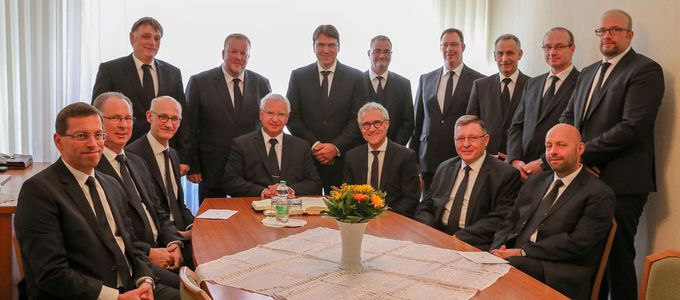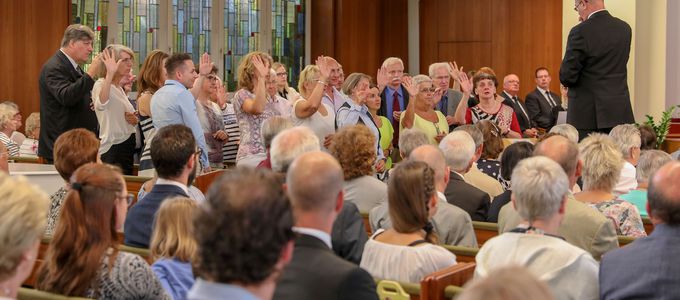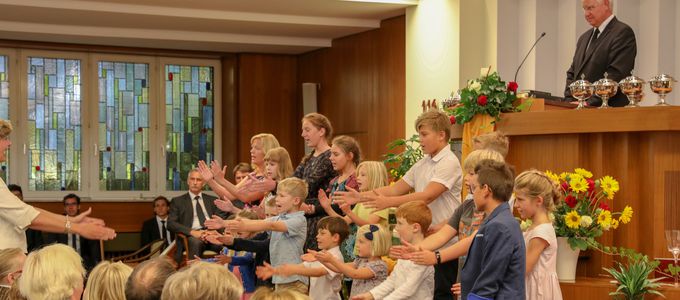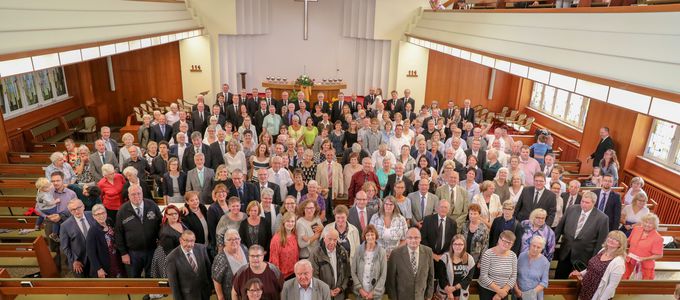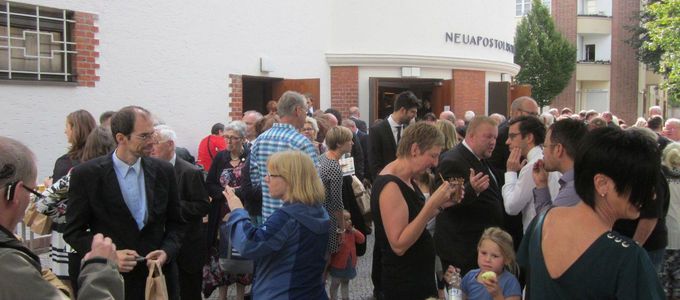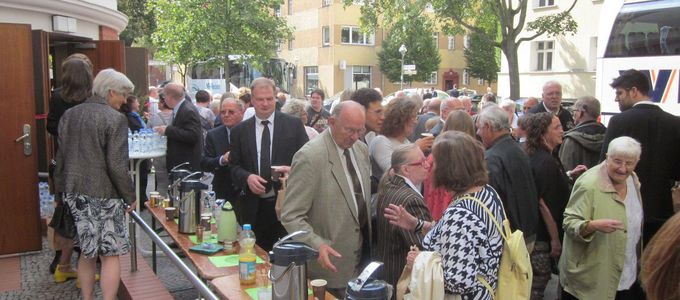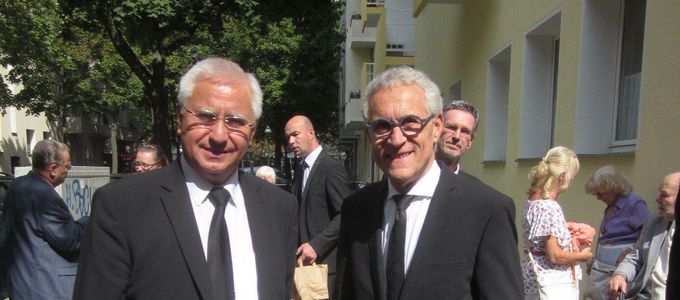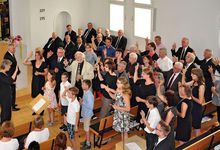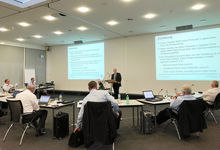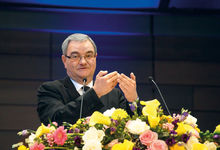Whoever has eyes, let him hear!
Seeing what is preached, signing what is sung. Sign language makes both language and music tangible—whether in Sunday School or divine service.
“Through sign language we all naturally belong!” This was the common motto of the International Day of Sign Languages and the International Week of the Deaf, which ran from 23 to 30 September 2018. It was at the very first Congress for the Deaf on 21 September 1951 that the World Federation of the Deaf (WFD) was founded in Rome, Italy. And this event is commemorated every year on the last Sunday of September.
Events for the hearing impaired in Germany
New Apostolic Christians are also among Germany’s approximately 80,000 deaf people. These individuals gather together in Germany and the German-speaking regions of Switzerland for monthly divine services. And every two years—as at the end of August in Berlin-Brandenburg—they assemble for a special Day for the Hearing Impaired. A special feature in the New Apostolic Church: it is not only the deaf, but also all members and friends with hearing impairments, who are invited to these divine services.
Last month, 250 participants attended recreational activities and a divine service with District Apostle Wolfgang Nadolny and Apostle Wolfgang Schug (Western Germany), chairman of the Project Group Inclusion. The youngest of these participants is barely seven years old, while the oldest is already over 90 years of age.
Divine services in sign language
These special divine services are offered across Germany, as well as in the German-speaking regions of Switzerland. “Depending on the region, divine services with sign language take place approximately once each month. In these services, the sermon is offered in Manually Coded Language (MCL) and also simultaneously translated into German Sign Language (DGS),” explain the organisers.
Within the District Churches, these members comprise a congregation of their own, with their own rectors, Priests, and Deacons. The pastoral care offer is not restricted to divine services, but also includes individual pastoral care. Some regions even offer Religious Instruction and Confirmation Instruction for hearing impaired children.
Ministers with special training
This has been made possible by ministers who receive special training for this assignment. The vast majority of these ministers are not deaf or hearing impaired themselves, nor do they even have any deaf or hearing impaired relatives. Often their involvement is simply driven by the desire to help and offer support. Holger Strewinski, one of the public relations workers for the hearing impaired in the German-speaking regions, explains: “Of the 100 workers who participated in a training event that took place some years ago, some 70 are still active.” So it is that an interpreter will drive straight across the districts in order to interpret for a monthly children’s service or conduct Religious Instruction or Confirmation Instruction.
Organisation across District Church boundaries
Our hearing impaired members only comprise a small group, but they require a special kind of care. “In order to develop the right response using the available professional competencies, a Work Group for the Hearing Impaired was established among the District Churches from 2002 to 2018. It was comprised of representatives from the various District Churches, and it convened to discuss all matters pertaining to the Church’s work with the hearing impaired. In particular, the group worked to develop documentation for standardised pastoral care for the hearing impaired. Examples of this included the creation of liturgical texts in sign language and the implementation of faith-related gestures.” In the year 2018, the newly established Project Group Inclusion took over responsibility for these duties.
Sign poetry
Choirs also play a role in these divine services for the hearing impaired. They perform hymn texts—either with or without music—in sign language. “In some places, this has led to the development of a beautiful form of sign poetry,” explain the organisers. The small choir in the video is signing, “In You, O Lord, I put my trust”.
Article info
Author:
Date:
Keywords:
Oliver Rütten
27.09.2018
Divine service,
Social commitment,
Congregational life


